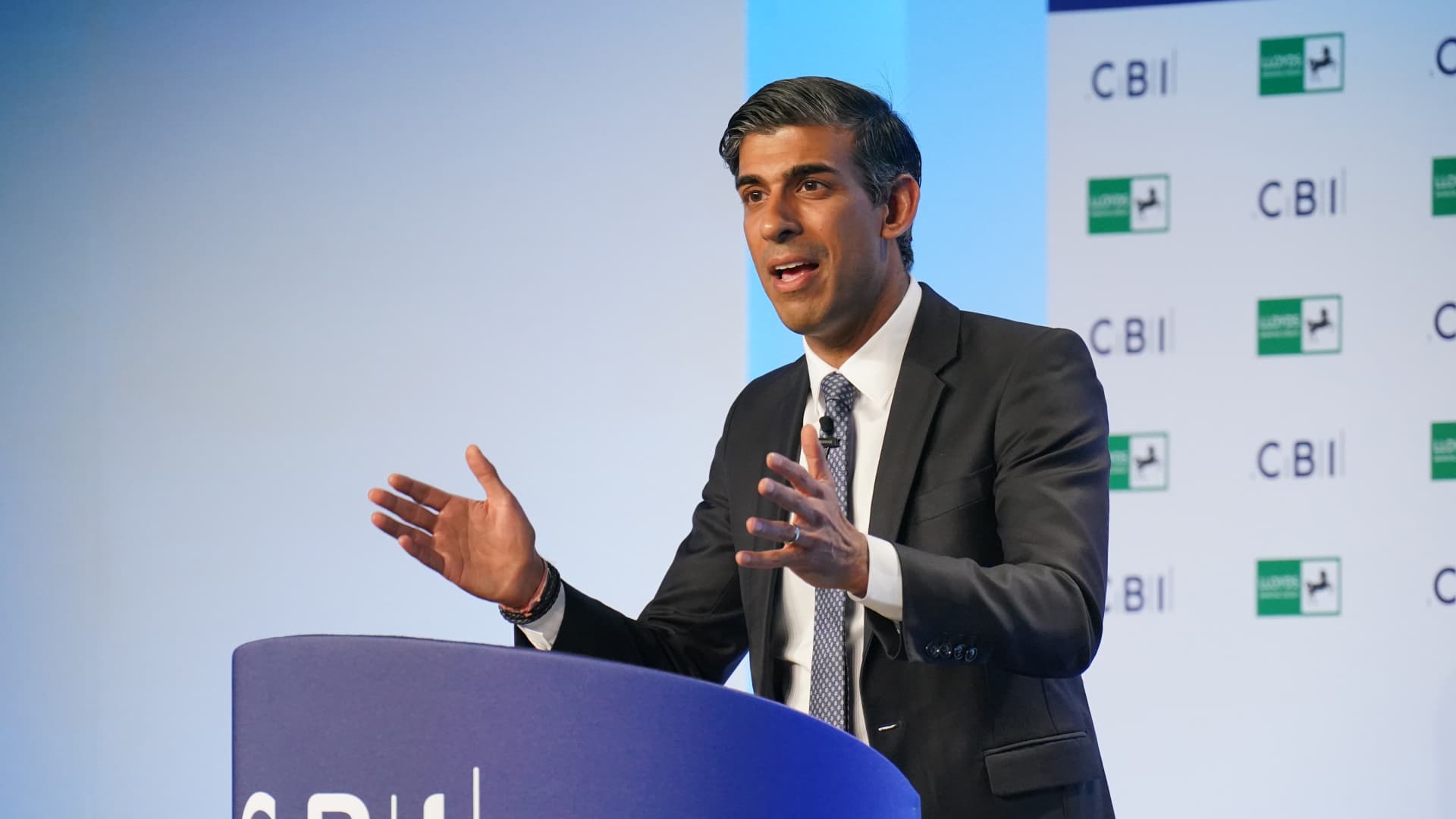LONDON — U.K. Finance Minister Rishi Sunak has imposed a windfall tax on oil and gas majors as the government scrambles to alleviate the country’s worsening cost-of-living crisis.
The measures come a day after a deeply embarrassing investigation into lockdown parties at Downing Street and amid sustained pressure on the ruling Conservative government to do more as soaring inflation pushes up the price of everything from food to fuel.
Sunak said soaring inflation is causing “acute distress,” with the economic situation becoming more serious over the course of this year.
U.K. inflation jumped to 9% last month as food and energy prices spiraled, reaching its highest annual rate in 40 years. The Bank of England expects inflation to rise above 10% later this year.
The decision to impose a windfall tax on energy companies marks yet another U-turn for Prime Minister Boris Johnson’s government. Sunak had previously rejected the one-off levy, saying that while it sounded “superficially appealing” it would ultimately deter investment.
Opposition lawmakers have repeatedly called on the government to impose a one-off tax on energy majors, saying the move would help to fund a national package of support for households.
Britain’s oil and gas giants BP and Shell reported massive quarterly profits earlier this month, as they benefited from surging commodity prices during Russia’s onslaught in Ukraine. It has fueled calls for the government to tax their surplus cash.
Rachel Reeves, shadow finance minister for the opposition Labour Party, welcomed Sunak’s change of heart over the policy following months of government opposition.
“It seems the Chancellor is finally being dragged kicking & screaming to a U turn, and four months late adopting Labour’s call for a windfall tax on oil & gas producer profits,” Reeves said via Twitter on Thursday morning.
“Why has it taken so long? Why have families had to struggle and worry while he dragged his feet?”
‘Nightmare scenario’
Earlier this week, the head of Britain’s energy sector regulator Ofgem warned that a price cap on the most widely used consumer energy tariffs was set to climb by £800 ($1,005) in October, bringing the typical household bill to £2,800 a year.
The proposed cap would be a substantial jump from the current level of £1,971 which, when it was introduced last month, represented a record-breaking rise of £700.
“The price changes we have seen in the gas market are genuinely a once-in-a-generation event not seen since the oil crisis in the 1970s,” Ofgem CEO Jonathan Brearley told lawmakers on Tuesday during a Business, Energy and Industrial Strategy Committee.
He added that October’s proposed price cap surge could see the number of households in fuel poverty nearly double to 12 million from 6.5 million. Fuel poverty refers to when a household is unable to afford to heat their home to an adequate temperature.
Campaigners have described the prospect of further energy bill rises this winter as a “nightmare scenario,” warning that only an emergency budget could solve the crisis gripping the world’s fifth-biggest economy.
The End Fuel Poverty Coalition has estimated that if fuel poverty levels hit the limits predicted, thousands of additional winter deaths will take place due to cold homes in 2022 and 2023 — mainly among the elderly and vulnerable.
“The injustice of it all is just incredible,” said Brenda Boardman, an emeritus fellow and researcher of low-carbon energies at the Environmental Change Institute at the University of Oxford.
“We desperately need an energy market that is designed around the needs of the consumers, not the needs of the suppliers. This is, after all, a basic necessity, that is ultimately about life and death, as well as comfort, good health and child development.”
